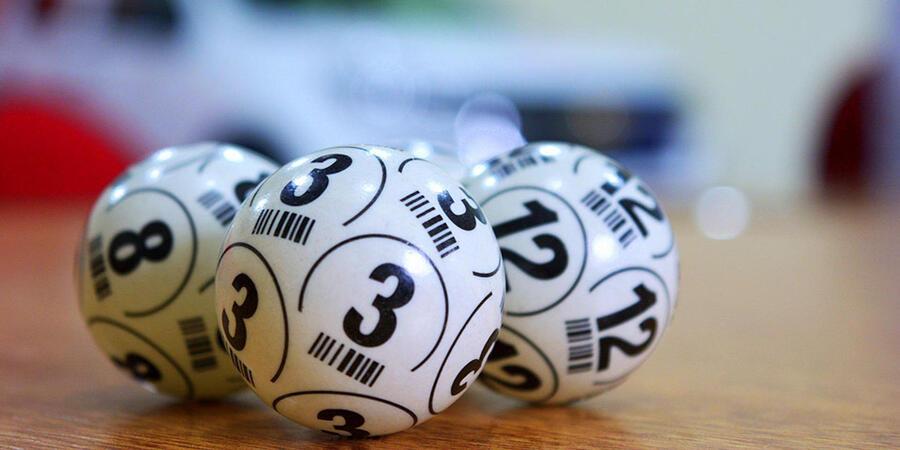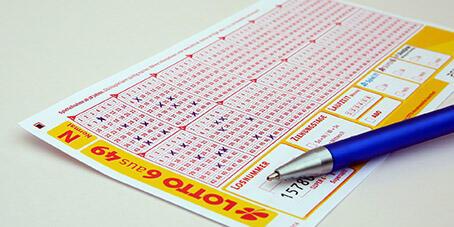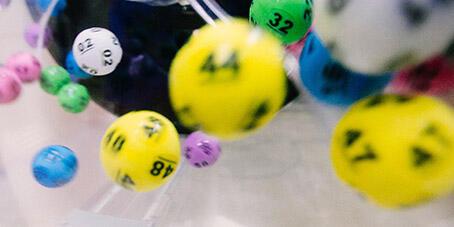Earlier this year, my love of mathematics caused the shopkeeper in my local shop to laugh at me. This blog is a way to explain myself.
Only twice in my life have I bought a lottery ticket. The first was on my 16th birthday to celebrate being legally allowed to do so. My second ticket came almost 11 years later, because the laws of mathematical expectation advised me to do so.
Mathematical expectation is essentially what you get when you multiply the probability of a particular outcome by the value of that outcome. If we simplified the UK National Lottery considerably such that there was only one possible winner and only one prize — then the expectation would be the probability of winning the jackpot prize (with Camelot’s new rules this is about 1 in 45 million) multiplied by the value of the jackpot. In this simplified world, if the jackpot is greater than £90 million then the expected value of your lottery ticket would be greater than the £2 you paid to buy it, and might seem like a good deal.

On one Saturday in January, the expected value of each ticket was greater than £2. This came about with a huge rollover jackpot of £66 million and a more complex calculation for the expectation than the one I just envisaged; there are multiple prizes beyond the jackpot and not necessarily only one winner. Prior to the draw, a group of accountants at KPMG had predicted the expectation could be as high as £4.50.
As you might imagine, I didn’t match any balls and wasted my £2. Mathematical expectation describes what you would expect on average, over a long period of time. In other words, I would need to play many many games with the same rollover to expect each lottery ticket to make me £2.50. After all, the probability of me winning the jackpot was still 1 in 45 million. As Jordan Ellenburg summarises in his book How Not To Be Wrong, ‘the expectation is not what you expect’. It was indeed laughable to think it mathematically advisable to play the lottery.
However, the stem of my shopkeeper’s amusement did not come from the fact I was simply playing the lottery. It came from my choice of numbers — 33,34,35,36,37 and 38. My role at the Royal Institution involves developing and delivering Ri Masterclasses for young mathematicians. On a Saturday morning last November I had explored the mathematics of the lottery with a group of 36 eager nine and ten year olds. I was putting the conclusions we drew about the ‘best’ numbers to choose to the test.

Most of the students were not easily convinced, as presumably neither was my shopkeeper, that every possible combination of six numbers has an equal likelihood of appearing. Intuition seems to suggest that the group of numbers I chose on my ticket (let’s call this group A) is less likely to appear than say, 7, 11, 25, 39,41,43 (group B). Most students felt the latter group was more likely, because it was more ‘random’ or because ‘ you just never see numbers like group A’. The fact that you more frequently see non-consecutive numbers, does not mean that this particular non-consecutive group B is more likely than that this particular consecutive group A.
If I bump into my friend Anna at one of the many coffee shops near the Ri we might think this coincidental and exclaim ‘What are the chances of that? We never see each other!’ Is it less probable for me to bump into Anna than to bump into Brian, a stranger I saw yesterday? It only feels coincidental to Anna and I because we humans notice patterns; we notice people we know and in a similar way we notice consecutive strings of numbers. To conclude that it was hugely improbable to bump into Anna by comparing the likelihood of this with the probability of seeing any one of the possible people I don’t know is the same fallacy as comparing the likelihood of group A with the likelihood of all the possible non-consecutive groups.

Ri Masterclass students also convinced themselves of this by considering the problem from another angle. They investigated how many ways there were of choosing a certain number of items from a group. For instance, the students investigated how many ways there were of choosing three players from a team of five by physically grouping counters that represented each of the players.
The students were convinced that each combination of three players was equally likely; one student explained that this was the case even if the three chosen players had the same first name. She exclaimed ‘It is just one of the ten ways we could group the counters, it doesn’t matter what the name on the counter is!’ With the same reasoning, all the possible ways of choosing six players from a team of 59, or six numbers from the 59 lottery numbers, are equally likely. Why would it matter what numbers are written on the balls?
I can’t change my odds of winning, but perhaps I can choose numbers that other people don’t and maximise my share of the jackpot. The Ri Masterclass students decided that people often choose birthdays and don’t like consecutive numbers. I should have explained to my shopkeeper that my numbers maximised my winnings, hypothetically speaking. It is of course important to expect that this bounty will only ever remain hypothetical.
This article was written by Zoe Griffiths in 2016, when she was working at the Ri as Masterclasses Coordinator. Zoe is now is a renowned maths communicator, including giving talks in schools, at sciences festivals and at comedy nights. Find out more about Zoe's work at zoelgriffiths.co.uk